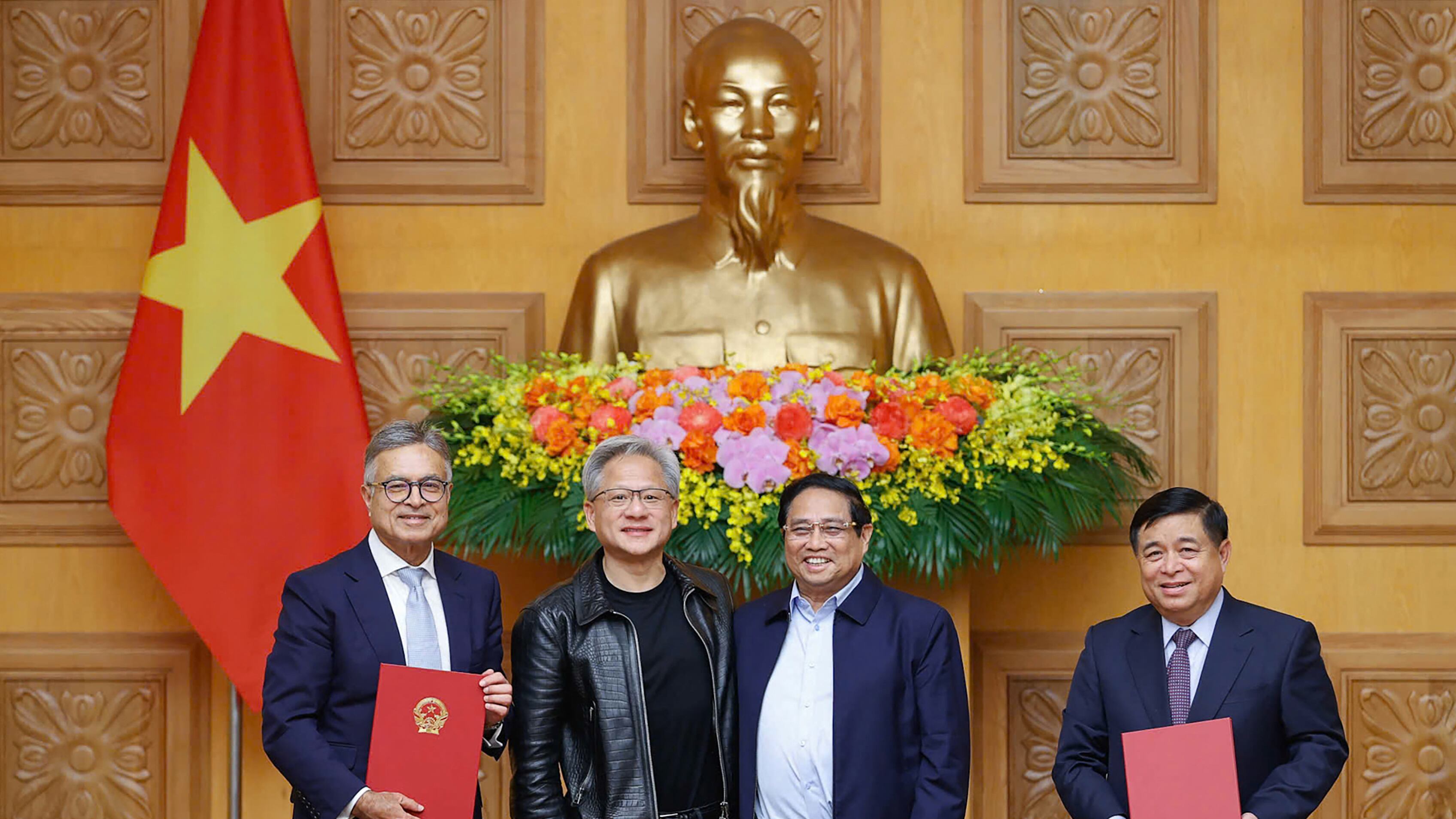It is now a month since COP29 opened its doors to delegates from around the world in the city of Baku, Azerbaijan on November 11.
A fortnight later, with the eyes of hundreds of millions in Asia upon them, it was revealed that the delegates had failed to meet the collective funding goals hoped for to support climate adaptation and mitigation in developing countries.
Instead of the $1.3 trillion sought after, the agreed amount of $300bn fell far short of the number experts ahead of the gathering indicated was necessary to effectively address the global climate crisis.
As a result, while this is a significant improvement of earlier targets, and while there is now an increasing consensus aiming for $1.3 trillion annually by 2035, the eyes of many have started shifting to another potential solution; increased use of nuclear power.
Classed as a form of renewable energy in the eyes of some, a danger to the planet in the eyes of others, nuclear energy’s role in tackling climate issues continues to gain recognition.
To this end, the lack of any formal release on nuclear energy in the days post-COP29 can be seen as another failure on the part of the delegates to take advantage of all resources at their disposal to properly address global climate woes.
Only in the COP28 Global Stocktake report was nuclear energy officially acknowledged for the first time alongside other viable mitigation technologies. And while reports point to early drafts at COP29 proposing references to this acknowledgment, the issue of how to best use nuclear technology was deferred to COP30 in Brazil.
Away from the main arena, however, nuclear energy as a viable global energy source did make progress. Six new nations in the form of El Salvador, Kazakhstan, Kenya, Kosovo, Nigeria, and Turkey opted to join the Net Zero Nuclear coalition; with stated aims to triple global nuclear capacity by 2050.
Other bilateral initiatives were announced between both the UK and Finland and US and Ukraine – primarily focussing on the development of small modular reactors (SMRs).
Asia’s nuclear outlook
Over in Asia meanwhile, nuclear energy use continues to expand, driven by rapidly growing energy demands and decarbonisation goals.
China leads the charge, operating the world’s third-largest fleet of nuclear reactors with many more under construction. India also aims to significantly boost its nuclear capacity, aligning it with its energy security and net-zero targets. On the subcontinent, India has a reported 23 operational nuclear reactors, with a total installed capacity of around 8.2 GW. These reactors currently contribute approximately 3% of the country’s electricity generation. At least 10 more reactors are under construction, and will one day add another 8.7 GW to the mix.
It is understood that New Delhi is also aiming at an annual output of around 23 GW by 2031 to help the world’s most populous nation meet its net-zero carbon commitments by 2070.
South Korea too has reaffirmed its commitment to nuclear power as a key component of its energy mix in recent years, while Japan is cautiously restarting reactors following its post-Fukushima 2011, reassessment: authorities in Tokyo list over 30 operable nuclear reactors, of which a reported 14 have now resumed operations.
Taiwan on the other hand, in part to appease a government known for playing the fear-card in the years post-2011 is now struggling with energy policy as it moves through the formalities of closing down all its nuclear plants.
As a result, it is in Southeast Asia that the bulk of future nuclear expansion potential lies.
Indonesia
Indonesia has made significant strides in exploring nuclear energy, with plans to build its first nuclear power plant by the 2030s. The government has approved a roadmap and is collaborating with international partners as it aims to leverage nuclear power to complement its renewable energy goals while reducing an overwhelming reliance on coal, which has thoroughly dominated Jakarta’s energy mix for decades. Possible SMR use has also made headlines in the past two or three years.
Vietnam
Vietnam too had plans to build nuclear power plants in collaboration with Russia and Japan, but shelved these projects in 2016 due to financial and safety concerns. Hanoi has since been focussing on increasing the use of LNG power across the country.
Malaysia
As one of the region’s leading LNG producers, Malaysia is also understood to be exploring the potential of nuclear power through feasibility studies and capacity-building programs. Kuala Lumpur however, has not yet openly committed to a timeline for adopting nuclear energy but continues to consider it as part of a diversified energy mix.
Thailand
North of Malaysia in Thailand, Bangkok has identified nuclear power as a long-term option in its Power Development Plan (PDP). However, no specific projects have been launched, and the focus remains on public acceptance and regulatory readiness.
Elsewhere in SE Asia
The Philippines too has expressed renewed interest in nuclear energy of late under its current administration. The government in Manila is said to be considering the revival of the Bataan Nuclear Power Plant (constructed in the 1980s but never operated) and exploring SMRs.
SMR use is an aspect of nuclear power generation that Singapore is also known to be looking into, in part as a result of its limited land area and high population density.
As the new saving grace in permitting nuclear power to be used in a wider range of locations than in the past, SMRs are quickly becoming the favoured potential future ‘go-to’ across Southeast Asia due to their scalability, lower costs, and enhanced safety features.
To this end, the Association of Southeast Asian Nations (ASEAN) is promoting regional collaboration on nuclear safety, capacity-building, and regulatory frameworks through initiatives like the ASEAN Network of Regulatory Bodies on Atomic Energy (ASEANTOM).
Challenges to adoption
Challenges remain, though, not least in the form of public concerns over safety, driven by past global nuclear accidents. Many countries are also still developing or strengthening their nuclear regulatory infrastructure and needing to come to terms with the financial investment required for nuclear power plants – a substantial challenge for many developing economies in the region.
Yet, with some of the world’s fastest-growing economies and exploding numbers of middle classes demanding access to clean and reliable energy sources, while no Southeast Asian country has yet operationalised nuclear power, it is only a matter of time before this becomes a reality.
As COP30 approaches, where Nationally Determined Contributions (NDCs) will be evaluated, nuclear energy is expected to feature prominently in the plans of nations advocating for it as a vital climate mitigation tool. Expect energy demands and Asian interest in nuclear power generation to play a major role in those talks.






